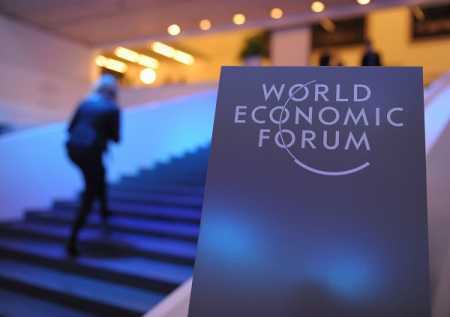Wed, 03 Sep, 2014 03:06:47 AM WEF's new competitiveness rankings map out global economies FTimes-Xinhua Report, Sept 3
According to the latest flagship report, the top two economies remain unchanged compared to 2013-2014 rankings, with Switzerland holding the position as the most competitive economy for the sixth year running mainly due to its transparent and efficient institutions, well-functioning market and strong innovative powers. The U.S. kept its upward trend, having risen two places to the 3rd as a result of its gains in institutional framework and innovation scores. Finland and Germany both fell one notch, respectively to the 4th and 5th. The top ten of the rankings also feature two Asian economies, with Japan listed as the 6th, and China's Hong Kong as the 7th. BRICS economies presented a mixed performance, and China (28th, one place up compared to last year) continued to lead the group, ahead of Russia (53rd), South Africa (56th), Brazil (57th) and India (71st). The gap between China and India has widened from eight places in 2006 to 43 today. Thierry Geiger, economist with WEF who is in charge of the Asia part of the report, told Xinhua that China continued to do well in the ranking with a stable performance compared to last year, noting that China scores greatly in the fundamental elements such as infrastructure, education and institutions. "China has invested in the basic building blocks of competitiveness which allows it to start from a sound base, and also the macro environment is extremely positive and favorable," Geiger told Xinhua. The economist suggested China to make more efforts to improve the market efficiency. "There are still a number of biases to entry and distortions in the markets which prevents an optimum allocation of financial and human resources. There is a need to make it more efficient.This would be essential for the next stage of development of China," said Geiger. The strong competitiveness of Hong Kong, China, was attributed by Geiger to its highly efficient market, especially a labor market effectively allocating human resources to the most productive use, and as well as its position as an international financial hub. But he pointed out that " there is room for improvement in terms of innovation" for the robust Asian economy. Moreover, this year's rankings outlined a persisting divide in Europe between a highly competitive North and a lagging South and East. "We see many northern European economies such as Finland and Germany continue to be among the tops, while Spain (35th), Portugal (36th), and Greece (81st) in the south are still lagging behind," noted Benat Bilbao, a senior economist with WEF. As for the uneven progress achieved among emerging economies, Bilbao told Xinhua that structural reforms to ensure an efficient allocation of production resources were in urgent need for those lagging behind, and investment into infrastructure and innovation were also essential. In Latin America, the report pointed out that major economies in the region need to implement reforms and engage in productive investment to improve infrastructure, skills and innovation. Chile (33rd) continued to lead the regional rankings. In the Middle East and North Africa, the United Arab Emirates (12th) tops the region's rankings. In sub-Saharan Africa, Mauritius (39th), South Africa (56th) and Rwanda (62nd) were listed in the top half of the rankings. "The strained global geopolitical situation, the rise of income inequality, and the potential tightening of the financial conditions could put the still tentative recovery at risk and call for structural reforms to ensure more sustainable and inclusive growth," Klaus Schwab, Founder and Executive Chairman of the World Economic Forum, concluded in a statement. The Global Competitiveness Report's competitiveness ranking is based on the Global Competitiveness Index (GCI), calculated by drawing together data covering 12 categories, namely institutions, innovation, macroeconomic environment, health and primary education, higher education and training, goods market efficiency, labour market efficiency, financial market development, technological readiness, market size, business sophistication and innovation.
More News
|
|
Finland Times
| Friday, 26 April, 2024 |


